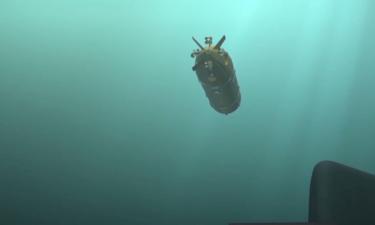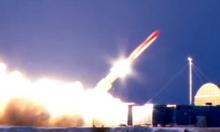Russia May Soon Join NATO
The most important issue that currently connects Russia with NATO is their joint counteraction to international terrorism
On October 29 NATO Secretary General George Robertson paid an official visit to Russia. This was his last visit before he passes the position to Netherlands Foreign Minister Jaap de Hoop Scheffer. For the time being, George Robertson still occupies the post of NATO secretary general. On the eve of his visit to Russia he made a statement which would have drawn much attention in Russia if the whole of the country was not agitated about the arrest of Mikhail Khodorkovsky and the rumors saying that head of the presidential administration Alexander Voloshin retired. The statement said that Russia might join NATO in the nearest future, even within 2-3 years.
The statement caused several inert comments from Russian experts who questioned if Russia actually needed NATO membership. Does Russia actually need this membership?
In May 2003, George Robertson was asked about the prospects of Russia’s joining the organization. He said that he did not rule out this possibility; however Russia's membership in NATO was not on the agenda at that time.
The most important issue that currently connects Russia with NATO is their joint counteraction to international terrorism. In general, Russia and NATO have no other important spheres of cooperation. That is why George Robertson was quite sincere when he declared that Russia's membership in the alliance was not on the agenda.
Let us assume that Russia joins the alliance. What would be the reaction of former Soviet republics to this fact while we know that the republics traditionally appeal to Brussels if they have contradictions with Moscow? Former Soviet republics also like to blackmail Russia with their possible incorporation into the alliance. Will NATO bureaucrats agree to perform the role of mediators in the disputes between prospective members?
All decisions in NATO are taken on condition that they are approved by all members of the alliance. There is no assurance that Eastern European and Baltic countries recently adopted into the alliance will approve the idea of Russia's NATO membership. These countries openly declared that they joined the alliance because of the unpredictable policy of the Russian leadership.
These are just few problems of those existing between Russia and NATO. And they are solvable after all. However, even if the parties manage to reach compromise on the above mentioned issues, they still will not see whether Russia benefits from NATO membership or not.
NATO was created as a collective defense union against the Soviet Union first of all. After the breakup of the USSR, the alliance lost its formal enemy. After the decade of searches for another purport, NATO has devoted its activity to fighting against international terrorism. This goal is vaguer than the Soviet Union. Indeed, terrorists have no state of their own, no strong army (and the alliance was created with the purpose of resisting armies). It is not quite clear into what the alliance is being transformed now. Some time ago NATO was a military and political block. Is it a police and political block now?
Russia does not need membership in NATO just for the sake of the membership itself. At the same time, this does not mean that Russia must give up cooperation with the alliance at all. The cooperation between Russia and NATO must be based on equal terms for the parties and on mutual trust. This means that Brussels must not only declare that NATO poses no danger to Russia's national security but also demonstrate how the declaration works in practice. To begin with, NATO should give up the idea of deployment of military bases and radar stations in close vicinity of the Russian state border. It is hardly likely that NATO will agree to give up its plans.
Subscribe to Pravda.Ru Telegram channel, Facebook, RSS!




